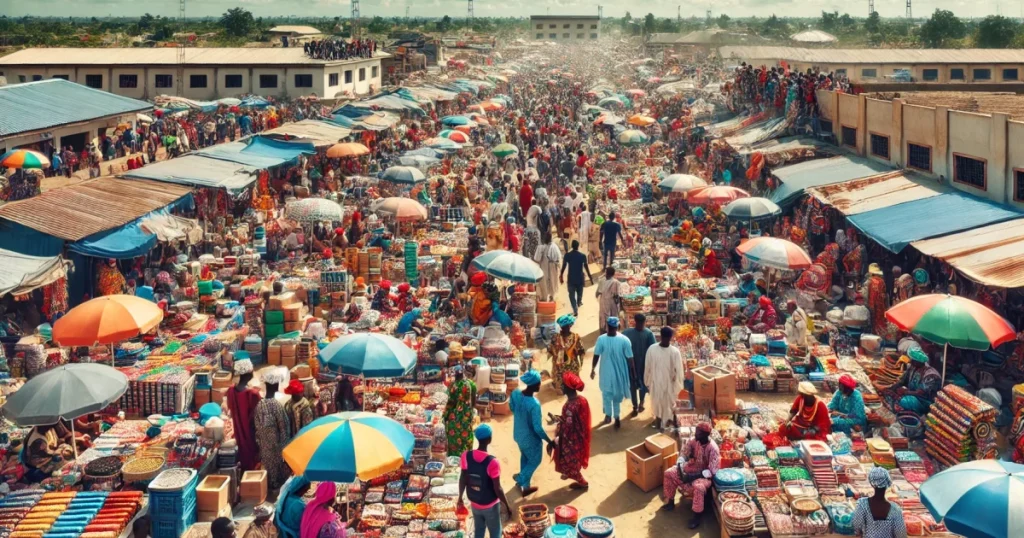Seasonal Businesses: A Driving Force in Nigeria’s Economy
Nigeria’s vibrant economy experiences a dynamic interplay with its diverse seasons and festive periods. This creates a tapestry of opportunities for businesses that are adept at capitalizing on the cyclical nature of consumer demand and agricultural production. From the rainy season’s agricultural bounty to the harmattan’s fashion demands and the festive season’s surge in entertainment and logistics, each period presents unique avenues for growth and innovation. These seasonal businesses not only contribute significantly to the national economy but also provide crucial livelihoods for numerous families, acting as economic lifelines within their communities.
Agriculture: Riding the Seasonal Wave
Agriculture, a cornerstone of the Nigerian economy, is deeply intertwined with seasonal variations. The rainy season brings a surge in the production of staple crops like maize, rice, and vegetables, benefiting small-scale farmers who witness a corresponding increase in market demand. This period allows them to maximize their output and reap substantial profits, underpinning their livelihoods. Conversely, the dry season has also become a viable period for agricultural production, thanks to the adoption of irrigation systems. This innovative approach ensures a continuous supply of fresh produce throughout the year, mitigating the impact of seasonal variations and satisfying consumer demand even during the harmattan.
Fashion’s Seasonal Transformation
The fashion industry in Nigeria showcases a remarkable adaptability to seasonal changes. The arrival of the harmattan season, with its cooler temperatures, triggers a surge in demand for warm clothing. Vendors of sweaters, jackets, and other winter apparel experience a significant boost in sales as consumers seek to protect themselves from the chilly weather. Similarly, the rainy season brings its own set of clothing demands, with waterproof items like raincoats, umbrellas, and rubber boots becoming essential commodities. This seasonal shift creates opportunities for businesses to cater to specific weather-related needs, driving sales and contributing to the industry’s dynamism.
Logistics and Entertainment: Festive Season Catalysts
The festive season, encompassing celebrations like Christmas and Ramadan, acts as a catalyst for several sectors, including logistics and entertainment. The surge in online shopping during these periods leads to a significant increase in demand for delivery services, as consumers opt for the convenience of e-commerce. Logistics companies experience a peak in activity, handling a large volume of packages and deliveries, highlighting the crucial role they play in facilitating the festive season’s economic activity. Simultaneously, the entertainment and tourism sectors witness a surge in demand, with families seeking recreational activities and getaways. Beach resorts, amusement parks, and event planners experience increased bookings and foot traffic, showcasing the festive season’s impact on leisure and hospitality.
Navigating the Challenges of Seasonality
Despite the abundant opportunities presented by seasonal businesses, entrepreneurs in Nigeria face a range of challenges. Economic factors like inflation can impact profitability, while erratic weather patterns can disrupt agricultural cycles and create uncertainty. Inadequate infrastructure can also hinder logistics and other businesses that rely on smooth transportation networks. Furthermore, access to financing and support services can be limited, particularly for small-scale seasonal businesses. Addressing these challenges requires concerted efforts from both the government and the private sector, including policies that promote stability, infrastructure development, and access to resources.
The Future of Seasonal Businesses in Nigeria
Seasonal businesses hold significant potential for driving economic growth and creating employment opportunities in Nigeria. By leveraging the country’s diverse seasons and festive traditions, entrepreneurs can build sustainable ventures that cater to evolving consumer demands. Innovation and adaptability are crucial for navigating the challenges inherent in seasonal businesses. Embracing technology, diversifying product offerings, and implementing efficient business models are essential strategies for long-term success. With the right support and enabling environment, seasonal businesses can play a vital role in strengthening Nigeria’s economic resilience and contributing to its overall prosperity.














